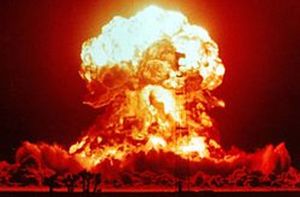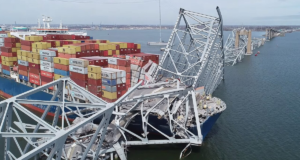Iran is likely to intensify its support and encouragement of Hezbollah, possibly even to the point of another Lebanon war.
 Baghdad, August 6 – Scorching temperatures across the Middle East for the last week are coming from a series of Israeli strikes on Iranian nuclear facilities, intelligence sources revealed Thursday.
Baghdad, August 6 – Scorching temperatures across the Middle East for the last week are coming from a series of Israeli strikes on Iranian nuclear facilities, intelligence sources revealed Thursday.
Unusually high temperatures, often reaching past 50°C (122°F), have hit across the region since late last week, overburdening many countries’ capacity for electricity output as demand for air conditioning and refrigeration skyrockets, and endangering tens of millions at risk of dehydration. Meteorologists have been at a loss to explain, or even accurately predict, the course of the weather pattern, but Turkish and Saudi military sources believe Israel has hit at least four suspected Iranian nuclear sites with atomic weapons, disrupting weather from Libya to Pakistan.
The sources, who spoke on condition of anonymity given the sensitivity of the subject, noted that no surveillance data confirms that aircraft or missiles ere launched toward Iran from Israel, a fact that reinforces the suspicion that Israeli stealth technology was involved in penetrating Iran’s airspace and avoiding detection by air defense forces over the countries in between. Israel is not known to possess stealth aircraft of the range that can hit Iran, leading experts to suspect that instead, Jericho cruise missiles have been equipped with the technology, which allowed them to penetrate Iranian airspace and deliver their nuclear payloads.
Satellite imagery – currently heavily redacted before reaching the public to conceal the photographic indications of nuclear blasts and their aftermath – show a pattern consistent with what followed nuclear tests in the Nevada desert and the South Pacific: a sudden onset of oppressive heat waves, followed after several days by unseasonable precipitation. “We would not expect it to occur on such a large scale but for the fact that a number of sites have been hit simultaneously across Iran, compounding the effect,” said the Saudi source.
Explanations differ as to why Iran has not seized on the explosions – which took the lives of at least 450 people – and reacted to them publicly. “They must be trying to hide something even bigger before they showcase the damage,” suggested the Saudi source.
The Turkish intelligence official, however, suggested that Iran is in fact intimidated by the strikes, and will do what it can to avoid giving Israel further pretexts. “If Israel has been willing to run these operations even at a time of maximum tension with the Obama administration, Iran must have assessed that making noise about these attacks will not have the desired effect,” he said. Both experts agreed, however, that Iran is likely to intensify its support and encouragement of Hezbollah, possibly even to the point of another war.
In keeping with their practice, Israeli officials have offered no comment on the suspicions. Prime Minister Binyamin Netanyahu, however, told the nation in a televised address last night that they should take advantage of the summer weather “as if there’s no tomorrow.”




